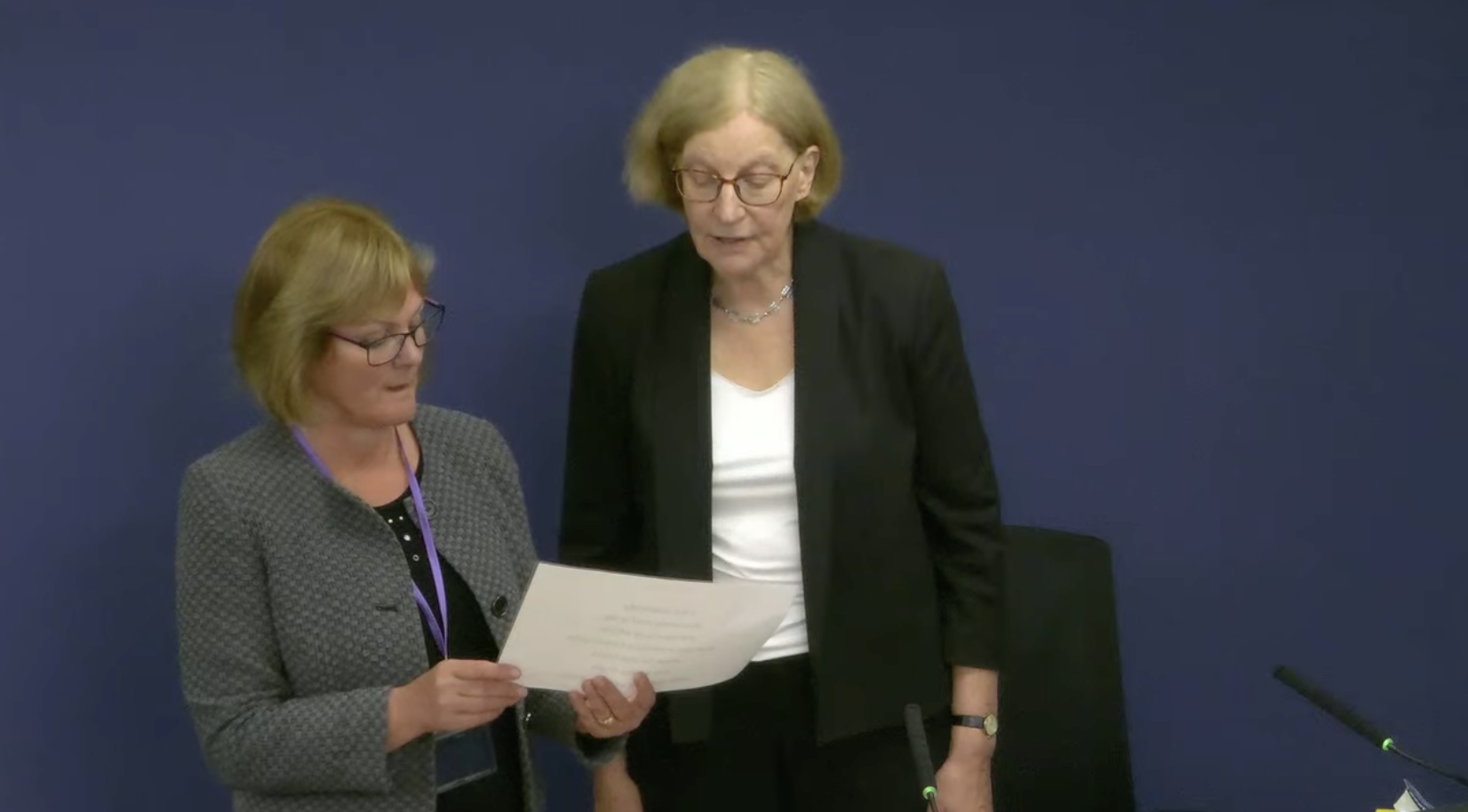
The Post Office scandal did not happen, or get covered up because of a single Machiavellian baddie. It happened because a bunch of serially incompetent people spent oodles of other people’s cash groping their way around a crisis without the competence or moral backbone to do the right thing.
Alice Perkins, Chair of the Post Office between 2011 and 2015, has all the hallmarks of a capable, clever person. And it’s true that capable, clever people sometimes makes serious mistakes, or lots of regular stupid mistakes, whilst surrounded by people making similar stupid mistakes. Maybe.
But, come on. The short story is that the appalling experiences of multiple Subpostmasters, whether channelled through the Justice for Subpostmasters Alliance, James Arbuthnot and his group of MPs, journalists, or the rigorous independence of Second Sight was staring Perkins and the Post Office in the face for years. Years. The only people telling the Post Office that the Post Office had done nothing wrong were Post Office staff and its compliant contractors (hello, Brian Altman KC).
That should have told these witless corporate drones something. But it didn’t. And all of us remain completely mystified as to why.
Watching Alice
Over five painstaking hours, Jason Beer KC today showed Alice Perkins all the opportunities she had to challenge, change, intervene and make a difference to the course of the scandal. Time and again she failed.
She hadn’t read Computer Weekly or Private Eye before taking the job. She listened to her external auditor, Angus Grant from Ernst and Young tell her right at the beginning of her tenure that the Horizon IT system was a “real risk”, as its accounts could not be verified. She did nothing.
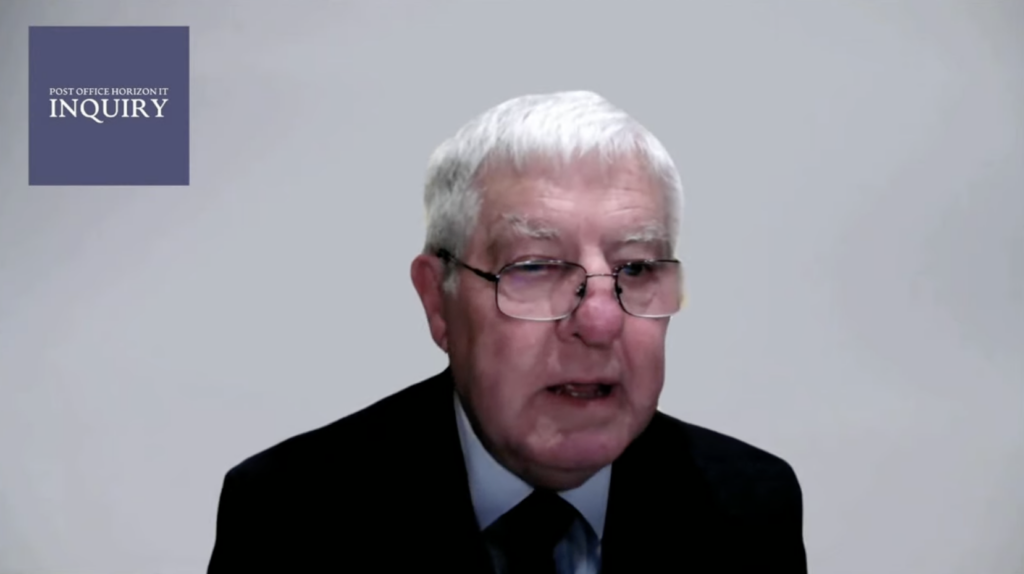
After taking the oath, Perkins’ evidence began with the Inquiry Chair, Sir Wyn Williams, reminding her of her “privilege against self-incrimination”. This suggests she is a person of interest to the Metropolitan Police, who are currently investigating a possible conspiracy to pervert the course of justice at the Post Office.
Then came the obligatory apology, in which Perkins told Subpostmasters and their families that despite her “serious efforts” to get to the bottom of what was going on, “I did not succeed in doing so during my four years at the Post Office and therefore the suffering of those affected was prolonged.”
Perkins witness statement was entered into evidence. It is a whopping 232 pages long and can be downloaded here. I suspect there are some gems within.
Bright start
The two gold stars we can put in Perkins’ achievement chart are her determination to instigate an independent review of the Horizon system (which led to the Second Sight Interim Report) and her equal determination to ensure that any review of campaigning Subpostmaster cases included those with criminal convictions.
When asked why, in March 2012, she volunteered an investigation of the Horizon system during a meeting with James (now Lord) Arbuthnot, she told Jason Beer: “I had had the meeting with Mr Grant. I was aware that Private Eye had been covering this. It was clear to me that Lord Arbuthnot was very concerned about this issue. I took him seriously and I think at this point I’d come to the view… that we should take a fresh look at this to see for ourselves.”
Two days after the meeting with Arbuthnot, Post Office board minutes record her telling her fellow directors that she and Company Secretary Alwen Lyons “met James Arbuthnot at his request to discuss the Subpostmaster cases questioning the integrity of the Horizon system. The chairman hoped that she could find a way to convince him and the other MPs that the system was not at fault.”
Beer wondered why Perkins was proposing an investigation designed to convince MPs the system was not at fault.
“It was not my intention”, she replied.
“Why did you tell the board that it was?” asked Beer.
“I don’t know”, said Perkins.
We were taken to notes Perkins apparently made after a private dinner she had with her CEO Paula Vennells at The Zetter restaurant in Clerkenwell on 19 March 2012. Included in the notes were the statements:
“We do not like prosecuting sub-postmasters. We are one of the very few public bodies who are allowed to bring our own prosecutions. Not something we take lightly. Our lawyers want a very high standard of proof (plus, no one would take lightly the decision to plead guilty to a criminal charge). We have taken a number of cases to the criminal court and we’ve never lost.” and “Horizon records transactions in great detail and with total transparency. All the keystrokes are recorded so we can reconstruct precisely what a Subpostmaster has done.”
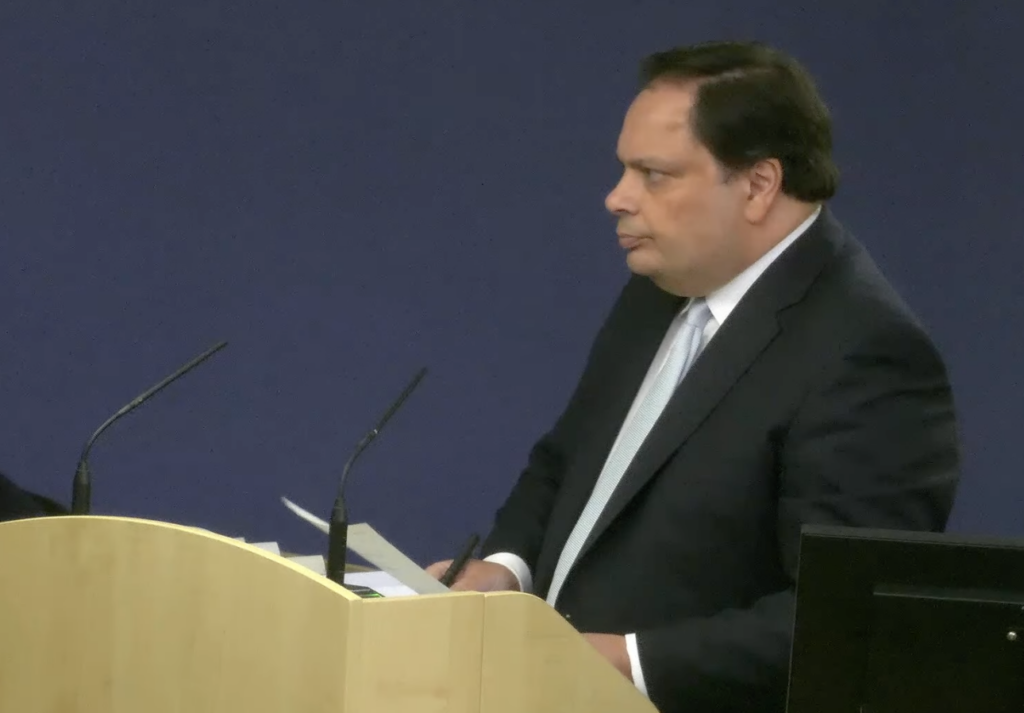
Perkins agreed these notes are not her “thinking that up from nowhere” and accepts that it was highly likely Vennells told her this. She also agreed she was being given the Post Office “party line”, which held for the duration of Vennells’ tenure as CEO. It’s also interesting to note that this appears to be the earliest evidence that Vennells had become aware of the Post Office’s status as a prosecutor.
The Empire Pushes Back
Having made the offer to James Arbuthnot to set up an independent investigation, Perkins was nonplussed to discover that no one at the Post Office thought it was a good idea or was inclined to do anything about it.
“Did you feel that the business was pushing back unnecessarily?” asked Jason Beer.
Perkins did.
“Who in the business was pushing back unnecessarily?” he asked
“I thought that Susan Crichton [General Counsel] was definitely pushing back unnecessarily. I thought Mike Young [Chief Technical Officer] was pushing back unnecessarily, and those were the two people who I had in the front of my mind”, replied Perkins. This was apparently partly because Horizon had already been proved to be robust and “given everything else that the business was trying to do at the time that there wasn’t the capacity to do this as well.”
Perkins persevered and got her way. Second Sight were formally appointed in July 2012. Yet twelve months later, in the days leading up to the delivery of Second Sight’s interim report, Perkins seems to have gone native and was attempting to either shut down Second Sight’s report or stall it so the Post Office could get it changed:
Beer asked her: “What was your understanding of the concern amongst senior Post Office executives about the Second Sight review?”
“My understanding” replied Perkins, “was that the executives thought that there were likely to be things in the interim report statements made by Second Sight which were not properly substantiated by the evidence.”
“What steps, if any, did you take to ensure that you were fully aware of what those issues were”, asked Beer.
“I obviously at this stage didn’t know what was going to be in the Second Sight report”, said Perkins “but I would have been concerned that there might be things in that report which were critical without being properly substantiated.”
Beer tried again: “Were you given any evidence of that as opposed to what people were saying?”
“I simply can’t remember how much detail I was given about it at that point”, Perkins replied.
When I use a word, it means just what I choose it to mean – neither more nor less
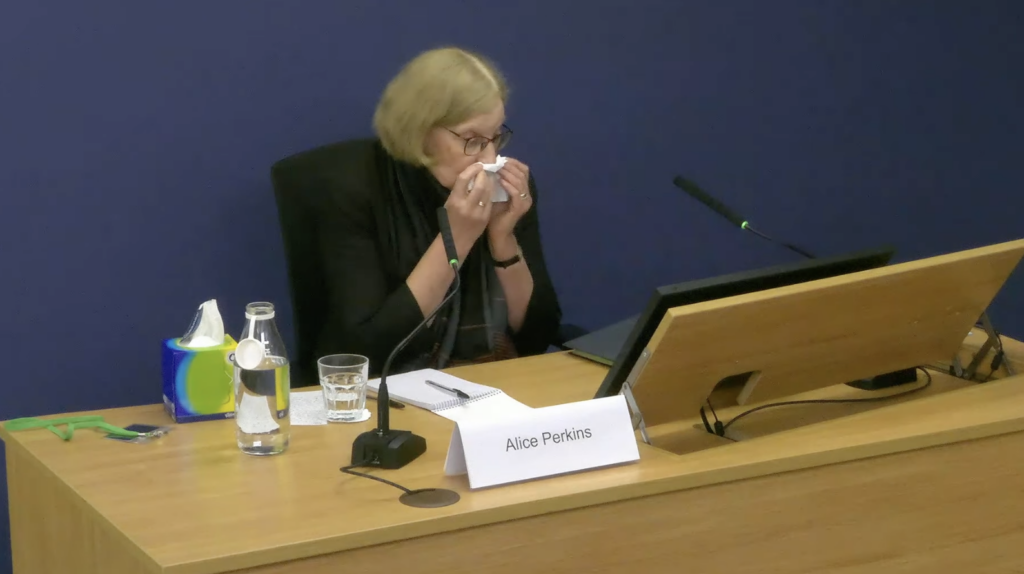
Nonetheless Perkins had somehow become convinced that Second Sight were wrong-uns, telling Paula Vennells in the run up to a meeting with MPs (where the Interim Report would be discussed) that “the risks of getting heavy with Second Sight [are] deeply unattractive. But I haven’t heard anything yet which gives me hope that we can get this properly back on track… Keep aiming high here. That is for the goal of no interim, no meeting.”
Perkins told the Inquiry in her Witness Statement she did not know what she meant by writing “keep aiming high”. Beer pointed out that she explained herself in the following sentence. Kill the Interim Report. Kill the MP meeting.
Oh no, waffled Perkins: “What I had in mind there was not what some people might read into this…. I think that what I was expressing there was the thought that the Interim Report was premature, that this was that more time needed to be spent on on the work leading up to a document that was going to be public. That’s what… that’s what I think.”
Perkins was taken to another document she had written, this time on 31 July 2013 after a meeting in which she berated her General Counsel, Susan Crichton, for not keeping a tighter control of Second Sight. Perkins wrote:
“I understood that Second Sight’s investigation had to be independent but in the civil service there would have been someone marking it who was close to all of the key people – Second Sight, James Arbuthnot, JFSA – and knew what was going on between them… Susan Crichton said that as a lawyer, it was inappropriate for her to influence key stakeholders.”
Beer picked her up on this:
“Would you agree that marking someone means to stay close to them, usually an opponent, in order to hamper his or her play?”
“If you’re a footballer, that’s certainly what it means”, started Perkins, before conceding: “I realise that that verb and the one about influencing give a very particular impression of what I was trying to do.”
Perkins told Beer that marking an investigation meant something completely different, which was: “liaison… keeping the channels of communication open with people who are doing an independent review, knowing how their time frame is working out, knowing how their costs are building up, knowing what they’re planning to do in terms of the way they go about their work and when it’s going to be presented and finding out whether there are things that they are encountering which are causing them difficulty or anything else that the organisation can reasonably be expected to want to understand.”
It was, said Perkins: “absolutely not my intention that Susan or anybody else in the Post Office should be trying to influence the substance of Second Sight’s report.”
My understanding is completely right from my point of view
Beer clearly thought this was hogwash. “You meant mark in exactly that sense. Influence, hamper their conduct, stay close to them. You wanted the key people, Second Sight, James Arbuthnot and the JFSA influenced in their conduct, didn’t you?”
“No”, replied Perkins.
“If you didn’t mean that”, said Beer “or you were not understood… then can you explain why Susan Crichton replied in the second paragraph there that it was inappropriate for her to influence the key stakeholders.”
And here Alice really did enter Wonderland, suggesting that “there was a complete failure of communication between what it was that I had in mind and what she… she interpreted that I had in mind. So I was… I’ve already said this, I’m on oath and I’m a truthful person. I am absolutely categorical that I, it was never my intention for anybody in the Post Office to try to influence Second Sight’s evidence-based findings, and I can see that if that is what Susan thought I meant, why she didn’t think that that was a proper thing for her to do. Because it wouldn’t have been a proper thing for her or anybody to do.”
Beer spotted the obvious problem with this answer:
“Why did you not say, “Hold on, Susan, I’m not even suggesting that at all. You’ve got the wrong end of the stick.”
Perkins replied with one for the ages: “My understanding of it is completely right from my point of view.* What I am saying is that I completely failed to communicate what I was trying to say.”
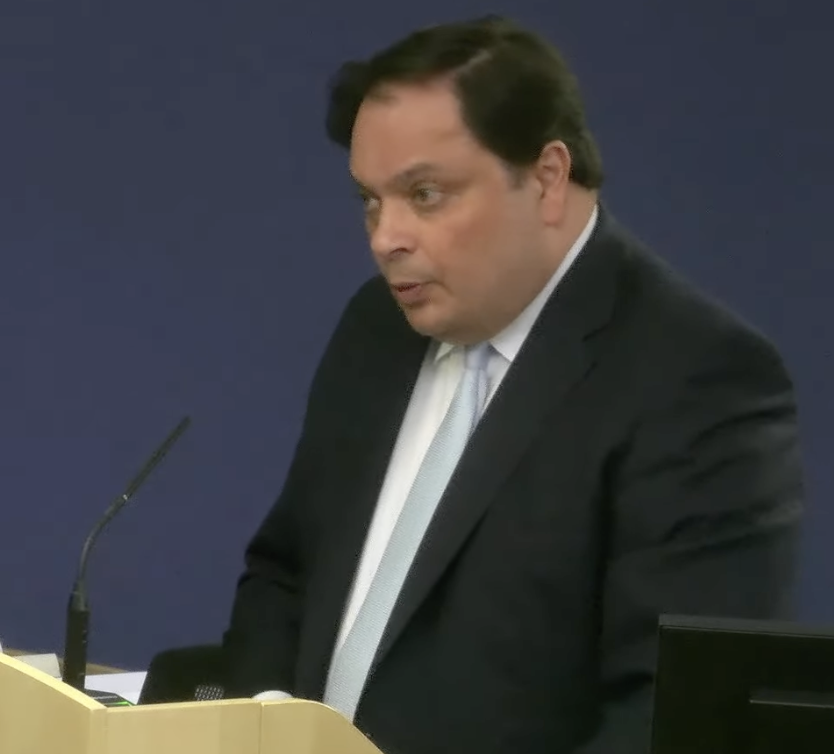
Beer reminded Perkins that Susan Crichton was under no doubt what Perkins means and gave evidence that Perkins was demanding that Crichton “should have exerted influence over the people responsible for the commissioning and conduct of the independent report and that’s why she said what she did about her professional duties.”
Perkins replied: “She did say that, but that doesn’t mean that it’s right.”
Once more, Beer asked: “So why wasn’t it corrected at the time?”
“Well I obviously wish that I had paid more attention to making sure that the record of this meeting was a correct description of what I intended.” replied Perkins, apparently suggesting that she now wished she had actually written down a false recollection of the meeting which didn’t represent the facts of what happened, but an intended version of events.
Perkins’ bullying of Crichton was also discussed in the context of her decision to keep Crichton on the naughty step during a crucial board meeting in on 16 July 2013. Whilst Perkins insisted it was out of sensitivity to Crichton, the decision had two clear outcomes. Firstly, by denying her the chance to argue her corner Perkins was able to scapegoat Crichton in her absence and avoid any pushback or blame over the way Second Sight were appointed and allowed to carry out their investigation. Secondly it prevented Crichton from telling the board about its liability for potential miscarriages of justice, which according to a board paper she had prepared, she may have intended to do.
“Did you know from any other source that that was Susan Crichton’s view that there would be many successful claims against the Post Office arising from past prosecutions?” asked Beer.
“No.” replied Perkins.
“Do you agree that that is important information to have received from your general counsel?”
“I do.”
“Do you accept that this critical information may have been passed to you if she had been allowed into the room?”
“I have no way of knowing that”, replied Perkins.
Secrets and lies
And to be fair, what Susan Crichton was going to tell the board remains a mystery, because at the very end of the day we were taken through a series of abject failures by three successive General Counsels to tell Alice Perkins and the Post Office board that they had a very serious legal problem on their hands, beginning with the first Clarke Advice of 15 July 2013.
Beer asked Perkins what she thought was going on: “I honestly don’t know”, she replied. “I mean, perhaps people… weren’t paying attention.”
“That would mean that a succession of General Counsels were each not paying attention on each occasion to a variety of papers.”
“Seems a bit…” agreed Perkins in the crosstalk. Beer tried again, eliciting a new suggestion from Perkins:
“Well, I don’t… I just, I mean, maybe it was too difficult… but I still don’t really understand that because if something’s very difficult, then you want to share it to make it hopefully less difficult.”
Yes, the only thing that really makes sense was if there was a concerted effort to keep information from the (somnolent and incurious) Post Office board by a series of execs over a period of years.
And that might be where the police go looking next.
* My understanding is completely right from my point of view is going to be my second tattoo, after a piece of Vennells drivel from 2020: His questioning was challenging and because of that it was helpful; it did not lead to any different outcomes.
Perkins continues to give evidence tomorrow – 6 June – starting at 9.45am – watch it live here (and see today’s evidence, if you want).
Read my preview of Perkins’ stint in the witness chair here.
Read the live tweets from today here.
The journalism on this blog is crowdfunded. If you would like to join the “secret email” newsletter, please consider making a one-off donation. The money is used to keep the contents of this website free. You will receive irregular, but informative email updates about the Post Office Horizon IT scandal.

Leave a Reply